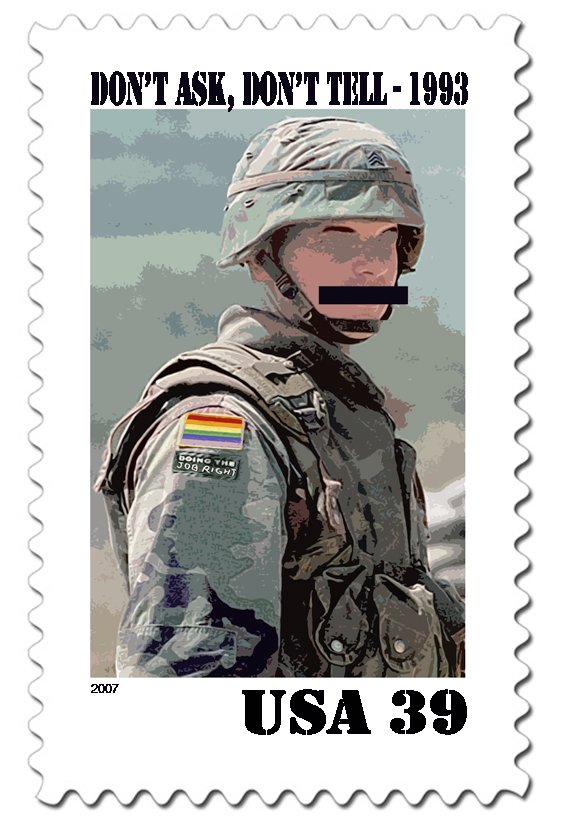(Was set to be published on Dec. 17, when the Senate voted for repeal, making it thankfully moot)
In the debate over repeal of the Don’t Ask Don’t Tell policy, Senators such as John McCain cling to the argument that allowing gays and lesbians to serve openly in the military might negatively impact on unit cohesion, and thus on war-fighting capability. The Commander of the Marines, General James Amos, has fueled such claims, suggesting that repealing the policy in a time of war could cause casualties. As the Senate begins its debate on the issue, it is crucial to understand the assumptions and validity of this argument.
The conclusion of the argument is itself tenuous. Over 25 of our democratic allies have changed their policies within the last twenty years to allow homosexuals to serve openly. Comprehensive studies of those militaries, including those of such close allies as Great Britain, Israel, Australia and Canada, have established that the change in policy did not result in any degradation of fighting capability. Moreover, prior to the policy shifts, surveys of military members in many of those countries found that there was strong opposition to the change, and suggested that there would be significant disruption if implemented. In other words, stated attitudes grossly exaggerated the likely impact. Yet the recent Pentagon study of the U.S. military found that 70% of service members already accept the change and think it would have little impact.
But let us assume for the moment, just for the sake of argument, that there might be some disruption to unit cohesion if DADT is repealed. Why would that be? No one suggests that it is because gays and lesbians are inherently less capable of fulfilling their duties or performing combat functions than their straight brothers and sisters in arms. It is not about their conduct at all. It is all about the response of their comrades.

 From banking to healthcare, looking to Canada has become fashionable of late. It is also an example on equality rights. I served as an officer in one of the first Canadian warships to deploy with women among its crew. That was only after a spirited campaign waged by the military against the integration of women in combat roles, in part on the basis that they would undermine the cohesion and fighting effectiveness of combat units. There would be privacy issues, sexual tension, an erosion of the essential masculine warrior ethos, and ultimately a degradation of military effectiveness.
From banking to healthcare, looking to Canada has become fashionable of late. It is also an example on equality rights. I served as an officer in one of the first Canadian warships to deploy with women among its crew. That was only after a spirited campaign waged by the military against the integration of women in combat roles, in part on the basis that they would undermine the cohesion and fighting effectiveness of combat units. There would be privacy issues, sexual tension, an erosion of the essential masculine warrior ethos, and ultimately a degradation of military effectiveness.